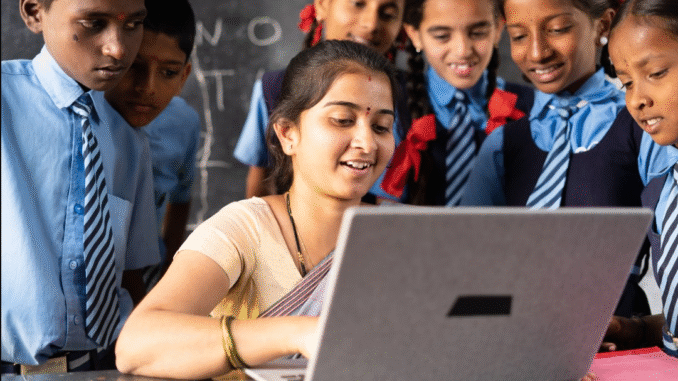
Unlocking Potential: How Modern Classrooms Are Shaping Future Leaders
In a world that is constantly evolving, the role of education has never been more crucial. Today, classrooms are not just spaces for memorization and exams; they are dynamic environments where innovation, creativity, and critical thinking take center stage. The modern classroom has transformed into a launchpad for the next generation of leaders, equipped with the skills and mindset needed to thrive in a rapidly changing global landscape.
The Shift from Traditional to Modern Classrooms
Traditional education models focused heavily on rote learning, standardized testing, and teacher-centered instruction. While these methods served their purpose in the past, they often failed to nurture the diverse talents and interests of individual students. Modern classrooms, however, emphasize a more holistic approach that recognizes the unique potential of every learner.
This shift involves a blend of technology integration, collaborative learning, and project-based instruction. Instead of merely delivering content, teachers now act as facilitators and mentors, guiding students through personalized learning journeys. This change has proven effective in fostering essential skills such as problem-solving, adaptability, and leadership.
Embracing Technology for Enhanced Learning
One of the most significant catalysts for this transformation is technology. Smart boards, tablets, and online learning platforms have revolutionized how students access and interact with information. Digital tools make it easier to accommodate different learning styles, allowing for greater inclusivity and engagement.
Moreover, technology enables students to connect with a global audience, participate in virtual field trips, and collaborate with peers from around the world. These experiences broaden their horizons and encourage a more global perspective—a critical attribute for future leaders.
The Role of Teachers as Mentors
In modern classrooms, the teacher’s role has evolved from being a source of knowledge to a mentor who supports and inspires. Teachers are now facilitators of learning who encourage inquiry, innovation, and independent thinking. They create environments where students feel safe to express their ideas, take risks, and learn from failure.
Professional development for educators is also more dynamic, focusing on equipping them with the skills to foster emotional intelligence, cultural competency, and digital literacy. These qualities are essential in guiding students to become well-rounded individuals ready to lead with empathy and insight.
Promoting Collaboration and Communication
Leadership in the modern world demands strong interpersonal skills. As such, today’s classrooms place a high value on collaboration and communication. Group projects, peer reviews, and interactive discussions are common practices that help students learn to work effectively with others, listen actively, and articulate their thoughts clearly.
These collaborative environments mirror real-world workspaces, preparing students for the team-oriented nature of most professional fields. They also teach conflict resolution and negotiation—skills that are indispensable for any aspiring leader.
Fostering Creativity and Innovation
Creativity is no longer confined to the arts; it is a vital skill across all domains. Modern education encourages students to think outside the box, experiment with new ideas, and approach problems from multiple angles. This creative thinking is nurtured through hands-on activities, maker spaces, and opportunities for artistic expression.
Innovation is often born from the freedom to explore and the encouragement to question the status quo. By valuing curiosity and encouraging exploration, modern classrooms help students develop the innovative mindset necessary to lead change and drive progress.
Cultivating Emotional Intelligence and Resilience
Emotional intelligence (EQ) is just as important as intellectual ability when it comes to leadership. Modern classrooms increasingly incorporate social-emotional learning (SEL) to help students understand their emotions, develop empathy, and manage stress. SEL programs teach skills such as self-awareness, emotional regulation, and relationship-building.
In addition, students are encouraged to view setbacks as opportunities for growth, fostering resilience. By normalizing failure as part of the learning process, schools help students build the confidence and grit needed to persevere through challenges—a key trait of successful leaders.
Encouraging Global Citizenship and Ethical Leadership
Today’s leaders must navigate a complex web of global issues, from climate change to social justice. Modern classrooms incorporate global citizenship education to raise awareness about these challenges and inspire ethical leadership. Students are taught to think critically about global problems, respect diverse cultures, and take responsible action.
Service-learning projects, environmental initiatives, and discussions on current events help students see the impact they can make in their communities and beyond. This sense of responsibility and ethical awareness is foundational to nurturing compassionate, thoughtful leaders.
Conclusion
The modern classroom is much more than a place of academic instruction; it is a nurturing ground for the leaders of tomorrow. By embracing technology, prioritizing emotional intelligence, promoting collaboration, and encouraging innovation, schools are unlocking the full potential of every student.
As education continues to evolve, the emphasis on leadership development will only grow stronger. With the right support, guidance, and opportunities, today’s students will emerge not only as knowledgeable individuals but as visionary leaders capable of shaping a better future for all.
